#Bory Mall
Text
Hehe, so imma gonna post my secret santa gift for @/mavis.hershey from the server ( ͡° ͜ʖ ͡°)

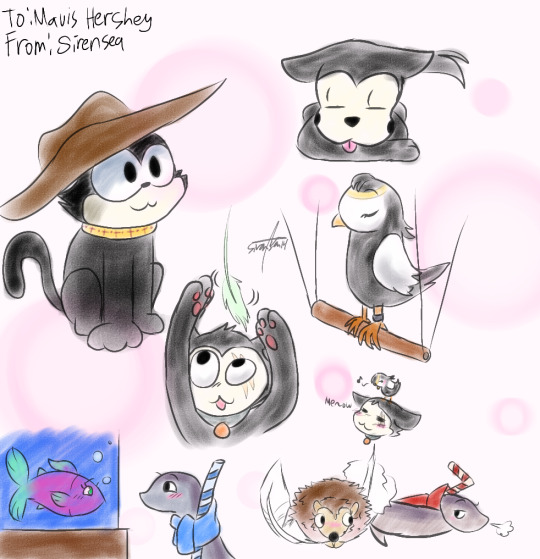
Holly decorating cuphead as a Christmas tree (on their shirts; Holly- the Tree's Princess, cuphead- the Princess' tree)
The questers as animals! Felix and bendy-cat, cupbros- snek, holly- hedgehog, cala maria- fish, and Alice- bird (alibends, mugman x cala and colly are there too)
#inkymystery#inky mystery#bendy and boris in the inky mystery#babitim#holly may#cuphead#colly#christmas tree#felix the cat#bendy the demon#alice angel#mugman#cala maria#boris the wolf#christmas gift#sirensea#quick posting cuz im at a mall rn lol#XD snek is a joke but its so cute!#christmas#christmas art
55 notes
·
View notes
Photo
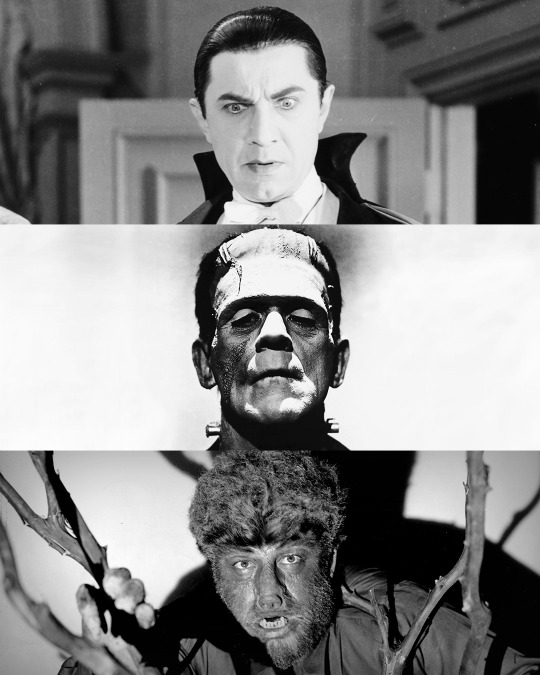
Gustan del Terror Clásico? tu que Opinas Love? Procede o no? Como es? su Pizza con sus Cervezas! y después a la camita?
Drácula (Béla Lugosi) 1931
Frankenstein (Boris Karloff) 1931
The Curse of the Werewolf (Lon Chaney Jr.) 1941
#Drácula#Béla Lugosi#Frankenstein#Boris Karloff#The Curse of the Werewolf#Lon Chaney Jr.#Halloween#cine de terror#cine de culto#cine clasico#clasic film#cigarros Pall Mall#Ron Cartavio#vans skate#vans old skool#Hot Topic#dr martens#pizzas y Movies
15 notes
·
View notes
Photo





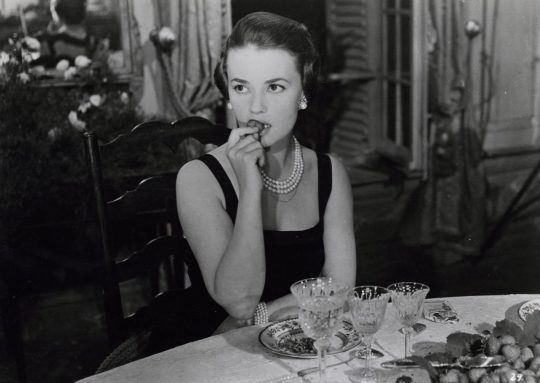


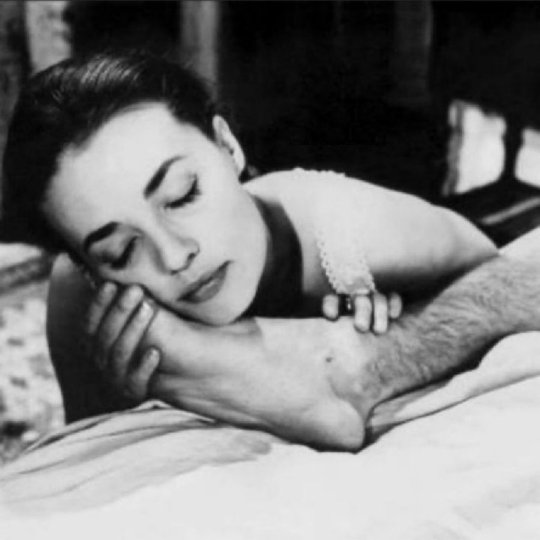
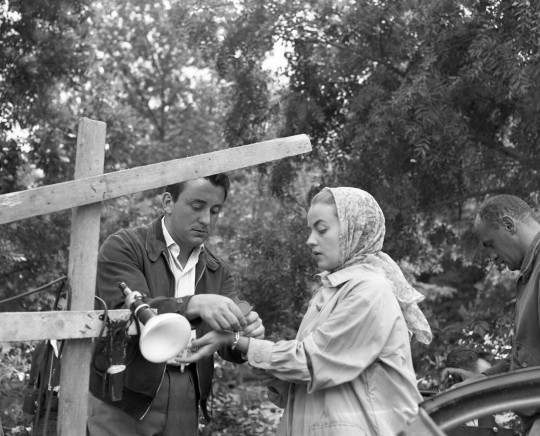
The Lovers (Les amants) (1958) Louis Malle
December 13th 2022
#the lovers#les amants#1958#louis malle#jeanne moreau#jean-marc bory#alain cuny#judith magre#jose luis de vilallonga#gaston modot#jean-claude brialy
14 notes
·
View notes
Text
Norton Campbell.

#mod: boris#mod post#// mod post#identity v#idv#idv prospector#idv norton#i drew him at the mall with a cool pencil#i got that pencil
5 notes
·
View notes
Photo
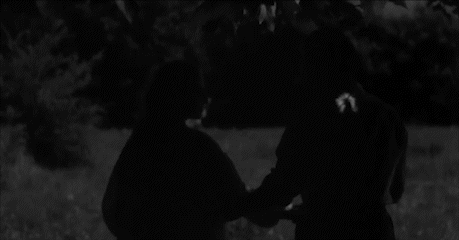
Les amants (The Lovers) // dir. Louis Malle, 1958
6 notes
·
View notes
Photo
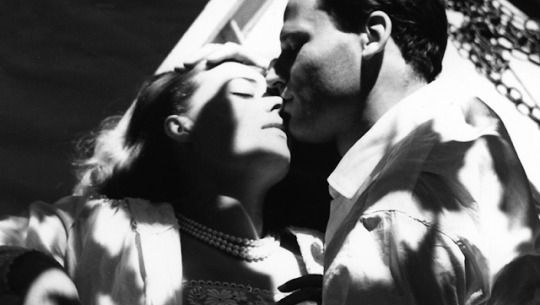
Jeanne Moreau and Jean-Marc Bory in The Lovers (Louis Malle, 1958)
Cast: Jeanne Moreau, Jean-Marc Bory, Alain Cuny, Judith Magre, José Luis de Villalonga, Gaston Modot. Screenplay: Louise de Vilmorin, based on a novel by Dominique Vivant. Cinematography: Henri Decaë.
Anna Karenina without the train. That's one way of looking at Louis Malle's once-scandalous but now somewhat tepid The Lovers. That seems to be the way the German censors saw it: a story about a woman who abandons not only her husband but also her child, and seemingly gets away with it. In the German release, the scenes involving Jeanne Tournier's (Jeanne Moreau) daughter were cut, as if the idea of a mother leaving so adorable a child was too horrible for audiences to contemplate. In the United States, of course, it was the depiction of sex -- not "cutting away to the window" as Malle once described the traditional approach to sex scenes -- that caused the censors to draw their knives. The result was the Supreme Court decision that The Lovers didn't fit Justice Potter Stewart's famous definition of pornography: "I know it when I see it." He didn't, and it isn't: What we see in the scene are a briefly flashed nipple and the look on Jeanne's face as Bernard (Jean-Marc Bory) brings her to orgasm. Even the fact that she is being pleasured orally by him is only implied by his absence in the frame. The Lovers is more satiric than erotic, its targets the stale marriages and pro forma affairs of an haute bourgeoisie obsessed with hairstyles and polo games. Malle attempts to contrast the sterile dalliances of the idle rich with the more spontaneous relationship between Jeanne and Bernard, a casually dressed archaeologist who drives a clunky tin-can Citroën, but the film gets a little too formulaic, especially in the lushly romantic moonlight stroll and boat ride that serves as foreplay to the consummation of their affair. He switches back to irony at the end: Jeanne and Bernard escape together under the astonished gaze of her husband and her other lover, but we sense their uncertainty about whether it will work, anticipating the way Mike Nichols tempered romance with reality by holding the camera just a little bit too long on Benjamin and Elaine after they escape from the church in The Graduate (1967). Maybe we don't see the train but we hear it approaching.
0 notes
Text
Finn and his characters cuddling you - headcanons
Pairing: Finn Wolfhard + Finnverse characters x gender neutral!reader
Warnings: rather fluffy with a tinyyyy bit of spice, ok? No smut this time ❤️
Summary: how Finn and each of his characters would cuddle with you 🥰
Love note from Nina: my last two Finn-related fics pretty much flopped, and that made me quite sad. I considered abandoning this account, I’m not sure if I should just keep putting these fics out into the world, even if no one cares. Anyway. Trying to write some fluffier stuff as well 💕



Finn Wolfhard (himself)
Our beloved boy won’t say it to your face, but he’s a sucker for some cuddles. He was a bit more reserved regarding physical affection when you two met, but with time, you truly made him a serial cuddler. Whenever he has some time off, you’re required to meet up with him and cuddle him for a good couple hours. Finnie lovesss putting his head on your chest and listening to your heartbeat, or just lying on top of you altogether. He says it’s really calming, and his anxieties all seem to melt away. If you run your fingers through his hair, humming or whispering sweet nothings to him, it’s over - he’ll either fall asleep in a minute or get the urge to, you know, take things further. Being able to relax and trust someone so much actually turns him on quite a bit.
Boris Pavlikovsky
It’s hard to make this one ask for cuddles, he’ll mostly just lie beside you in bed and cuddle you without a word, or make you lie down with him if he knows you’re not busy. Being a big spoon all the way, expect him to attach himself perfectly to your butt, and get used to feeling his erection a bit while you’re cuddling. It doesn’t mean anything, though - he’s just relaxed, he’ll say, nothing malicious. There has to be some serious hand holding all throughout the cuddling session, some neck kisses and sweet words in Russian or Polish as well. Also lots of “love you forever, kochanie”, “you smell so good, wish I can smell you forever”, that delicious accent never failing to make you smile.
Mike Wheeler
After a d&d campaign or a stroll at the mall with the gang, your paladin expects some good time alone with his sweetheart - and cuddles are mandatory for him. He’ll normally take you to his room or to his basement, put his arm around your shoulder with the lamest “fake yawn” move and cuddle you. You’ll laugh and embrace him fully, still amazed that he actually pulled off that cliché on you (and well, it worked). Mikey loves some light making out and tender caresses as you two cuddle, even if they don’t lead to anything - he just loves touching your body in anyway he can, just feeling that you enjoy his company and his touch is more than enough to get him smiling like a little kid.
Miles Fairchild
Cuddles are a bit rarer with Miles, but that’s just because he doesn’t really know how to ask for them. Non-sexual affection is a bit harder for him, you’d always known that. So, you can just initiate the cuddles whenever you want them, and he’ll never deny them. When you two cuddle, he’ll embrace your body fully, tangling his legs to yours, arms around your torso, all of it. Usually you’re on top of him, he likes to think he’s protecting you. He’s not very vocal on expressing his feelings for you, but he’ll run his fingers through your hair gently, ask if you’re comfortable, if you need anything, and talk about anything you want.
Trevor Spengler
You know Trev can’t resist some good cuddles. He was a bit shy at first, but as you two got closer, he felt more comfortable to ask for cuddles and kisses when he’s feeling a bit needy. When you two are in bed, he lovesss to be the little spoon and wear you like a human backpack. If you’re on the couch or on the backseat of the Ectomobile, he’ll cradle you like you’re a baby, making sure to caress your face gently and pepper you with kisses. When you watch horror movies with him, it’s his time to shine, as he gets to squeeze you in his arms and “protect you” from the ghosts and monsters in the films. He finds it adorable when you squeal and rush into his embrace as you get jumpscared.
Ziggy Katz
Our favorite internet celebrity is THE cuddles man, hands down. He’ll always make sure the bedsheets and blankets are fresh out of the dryer and that he smells amazing himself. The lighting is always a bit dimmed, mostly provided by the neon signs in his room. He’ll ask you to put your head to his chest and cuddle him as he runs his fingers through your hair, gently playing with it. Expect a lo-fi playlist to be playing softly on the background, as well as some slow kissing here and there. If it’s later in the evening, you two will probably end up dozing off and having some good repairing sleep together, only to wake up completely tangled up in each other’s arms the next morning. He just loves having you around and sharing that kind of intimacy with you.
#finn wolfhard smut#finn wolfhard x reader#imagine#mike wheeler#mike wheeler x reader#miles fairchild#trevor spengler#smut#trevor spengler x reader#finn headcanons#ziggy katz x reader#boris pavlikovsky x reader
76 notes
·
View notes
Text
Theo and Boris listening to music in their messy bedroom. Theo and Boris wearing each others clothes. Theo and Boris
having un-serious childish arguements. Theo and Boris sleeping in the same bed, in each others arms. Theo and Boris
teaching each other little niche things. Theo and Boris playing at the abandoned park late at night. Theo and Boris falling
asleep on the couch to a film. Theo and Boris shoplifting and snickering to each other as they do so. Theo and Boris walking
in the heat of Nevada under Boris's umbrella. Theo and Boris skipping school to live their lives. Theo and Boris getting each
other through the dreadful classes at school. Theo and Boris laughing till they feel sick. Theo and Boris learning each others
favorite food so they could get it for the other. Theo and Boris going to McDonalds in the early hours of the morning to play in
the playground. Theo and Boris filled with thrill by running from mall cops. Theo and Boris making each other dinner. Theo
and Boris smelling like chlorine from swimming. Theo and Boris who are inseparable. Theo and Boris who are best friends.
Theo and Boris who are something more.
#the goldfinch#donna tartt#theo decker#boris pavlikovsky#boris x theo#boreo#theo x boris#all things they actually did in the book btw
119 notes
·
View notes
Note
Hey! I love your artstyle a lot. It's so cute and recognizable! (≧▽≦)💜
For the December requests, how about Boris/Bryan as a Mall Santa with a foul mouth?

who hired him
37 notes
·
View notes
Text
Uh so I found this in the mall in my city and I want to spend every cent I have to win a Boris or bendy plushie 🫠😭
(For some context, in my country it's somewhat hard to find bendy merch)

#batim#bendy and the ink machine#batdr#bendy and the dark revival#i want this so bad whyyyy#alice angel#bendy#boris batim
28 notes
·
View notes
Text
Anonymous asked: You’re one of the smartest and well-grounded defenders of conservatism I have read here but I’m curious how you would defend the British monarchy. What would you say to those critics who think the coronation of King Charles III and the monarchy in general is just a waste of time as its rituals are out-dated and therefore has no symbolic value? How will you and your family be celebrating the coronation of King Charles III?
Thank you for your kind words, however undeserved. I’ve already started celebrating the coronation. I was in London earlier in the week seeing family and friends and I was just taking in the magnificent royal pageantry makeover of central London. One of my gentlemen’s club is in Pall Mall (it feels weird to say that as a woman) and just walking down there up to Fortnum & Mason and Hatchards bookstore in and around Piccadilly and Green Park gave me goosebumps. I only wish I was there longer but alas I had to get back to Paris; but at least I bought some food and tea stash from Fortnum & Mason to bring back to friends.
I’ll be properly celebrating the coronation by hosting a ’street party’ on our French vineyard with my cousins and inviting some of the British expats and French neighbours to celebrate with lots of fine wine and champers in full flow. Like millions of others, my immediate family are doing their own thing to celebrate the coronation. Overall, it should be a great day. And historic too. I have a spring in my step even if the very next day I have the weight of work on my shoulders as I rush to the airport the very next day to step back on the punishing corporate treadmill.
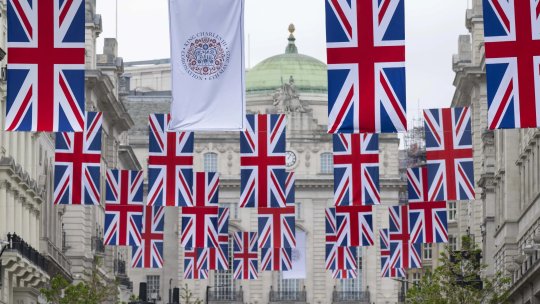
On the face of it, the British monarchy runs against the spirit of the times. Deference is dead, but royalty is built on a pantomime of archaic honourifics and frock-coated footmen. In an age of meritocracy, monarchy is rooted in the unjustifiable privilege of birth. Populism means that old elites are out, but the most conspicuous elite of all remains. Identity politics means that narratives are in, but the late queen kept her feelings under her collection of unfashionable hats. By rights, support for the crown should have crumbled under Elizabeth and especially under Charles. Instead, the monarchy has thrived. And it continues to thrive and thus maddening the bourgeois woke elites and perplexing race grifting decolonisation academics. And yet millions of Britons and many others around the world will tune in and celebrate the coronation of King Charles III. Unless your head is firmly embedded in the pages of the Guardian newspaper, poll after poll has shown the majority of Britons have supported the monarchy as an institution and the republican movement in the UK is a joke. Clearly the majority of Britons don’t see the monarchy as a waste of time or its rituals out-dated and nor having symbolic value? Why is that?
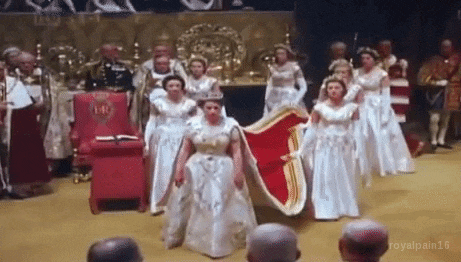
Most of the criticisms of monarchy are no longer valid today, if they were ever valid. These criticisms are usually some variation of two ideas. Firstly, the monarch may wield absolute power arbitrarily without any sort of check, thus ruling as a tyrant. However, in present era, most monarchies rule within some sort of constitutional or traditional framework which constrains and institutionalises their powers. Even prior to this, monarchs faced significant constraints from various groups including religious institutions, aristocracies, the wealthy, and even commoners. Customs, which always shape social interactions, also served to restrain. Even monarchies that were absolute in theory were almost always constrained in practice.
In Britain even the monarch was subject to the law from medieval times. As Sir Edward Coke put it in the famous 1610 Proclamations case, “the King hath no prerogative but that which the law of the land allows him”. If anyone doubts these issues are still relevant, the Supreme Court quoted these very words in its 2019 judgement on Boris Johnson’s prorogation of Parliament. And the pre-existing law referred to, that “common law of the land”, went back - both in legal myth and in the popular mind - to Anglo-Saxon times, the era of Athelstan and St Edward (whose crown King Charles will wear).
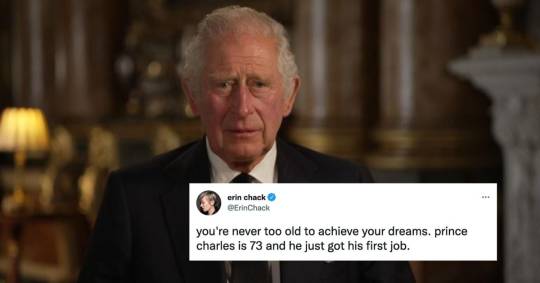
A second criticism is that even a good monarch may have an unworthy successor. However, today’s heirs are educated from birth for their future role and live in the full glare of the media their entire lives. More importantly, because they have literally been born to rule, they have constant, hands-on training on how to interact with people, politicians, and the media. This constrains bad behaviour, in theory. But it doesn’t always of course - just look at the antics of Prince Andrew and Prince Harry. Whatever your views of these people they are essentially peripheral figures to the central and singular importance of the monarch himself. The late Queen rarely put her foot wrong.
Even detractors of the monarchy had to admit the Queen herself conducted herself admirably. Christopher Hitchens, hardly a pro-monarchist but a staunch republican, was spot on when he shrewdly said, “the British monarchy doesn't depend entirely on glamour, as the long, long reign of Queen Elizabeth II continues to demonstrate. Her unflinching dutifulness and reliability have conferred something beyond charm upon the institution, associating it with stoicism and a certain integrity. Republicanism is infinitely more widespread than it was when she was first crowned, but it's very rare indeed to hear the Sovereign Lady herself being criticised, and even most anti-royalists hasten to express themselves admiringly where she is concerned.” Hitchens inadvertently highlighted an unseen truth about the longevity and relevance of the monarchy which is it has never been about the glamour or the gossip but about its symbolism which are deeply rooted in the ancient history of these lands.
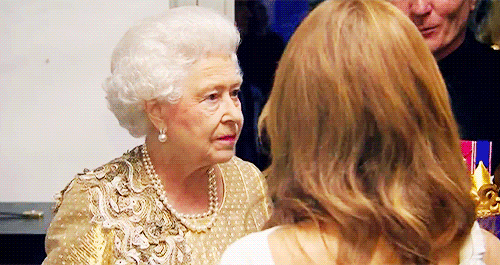
Critics may decry nostalgia for monarchy but they are missing the wider point which is the monarchy is at the beating heart of modern constitutional democracies. As in previous centuries, monarchy will continue to show itself to be an important and beneficial political institution wherever it still survives.
Look around and you’ll see that constitutional monarchies are undoubtedly the most popular form of royal leadership in the modern era, making up close to 70% of all monarchies. This situation allows for democratically elected governments to rule the country, while the monarch performs ceremonial duties. Most monarchs are hereditary of course but I would argue in republics like the US and France for instance one has a ‘republican monarchy’. The presidency has all the symbolic trappings of a monarch and plays that unifying role for the nation. As an aside it’s interesting to note that the French president, Emmanuel Macron, technically serves as a Co-Prince of Andorra - a fact I enjoy making my good French republican friends squirm in discomfort. But France remains resolutely a republic despite many other European countries being a constitutional monarchy.
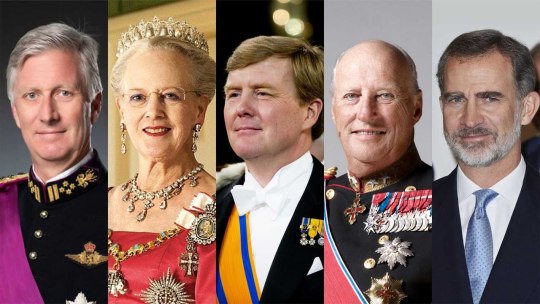
Monarchy has a long history in Europe, being the predominant form of government from the Middle Ages until the First World War. At the turn of the twentieth century every country in Europe was a monarchy with just three exceptions: France, Switzerland and San Marino. But by the start of the twenty-first century, most European countries had ceased to be monarchies, and three quarters of the member states of the European Union are now republics. That has led to a teleological assumption that in time most advanced democracies will become republics, as the highest form of democratic government.
But there still remains a stubborn group of countries in Western Europe which defy that assumption, and they include some of the most advanced democracies in the world. In the most recent Democracy Index compiled by the Economist Intelligence Unit, six out of the top ten democracies - and nine of the top 15 - in the world were monarchies. They include six European monarchies: Norway, Sweden, Denmark, the Netherlands, Luxembourg and the United Kingdom.
It remains a historical paradox. These monarchies have survived partly for geopolitical reasons, most of the other European monarchies having disappeared at the end of the First or Second World Wars. Their continuance has been accompanied by a steady diminution in their political power, which has shrunk almost to zero, and developing roles that support liberal democracy. What modern monarchies offer is non-partisan state headship set apart from the daily political struggle of executive government; the continuity of a family whose different generations attract the interest of all age groups; and disinterested support for civil society that is beyond the reach of partisan politics. These roles have evolved because monarchy depends ultimately on the support of the public, and is more accountable than people might think.
Understanding this paradox of an ancient hereditary institution surviving as a central part of modern democracies is a key part of understanding why monarchies persist and will continue to exist.
I would argue though that even within the modern constitutional monarchy, the British monarchy uniquely stands out from all the other European ones such as Norway, Sweden, Denmark, Belgium, Netherlands, and Spain.
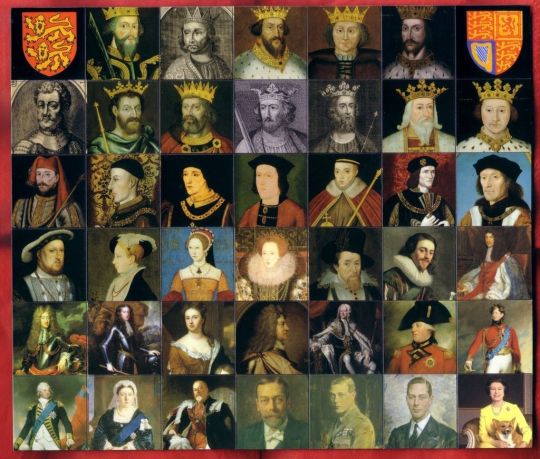
David Starkey, despite being curmudgeonly and provocative with his outsized remarks remains one of our finest medieval and royalist historians. He has always been particularly good at explaining the shifting tone of monarchical power in Britain. After the straightforward Anglo-Saxon model, English kings had to incorporate the Norman way of doing things, with its "chivalric virus"; we then see the Tudors appear with their imperialist vision, followed by the disastrous Stuart belief in the divine right of kings, which James I subscribed to intellectually, and which Charles I paid for with his head. After that we see Hanoverian mediocrity, followed by Victorian pomp, and Windsor flexibility – changing nationality and name as wars with Germany, their ancestral home, demanded.
From the beginning, Starkey argues, England’s monarchy has been unlike any other, divorced from imperial Roman traditions and based on an unspoken contract between king and people, and so reflecting a deep sense of patriotic exceptionalism. From Alfred, who effectively invented the idea of an English nation, to George III, who became the incarnation of bluff, beef-eating John Bull during the Napoleonic Wars, and on to George VI, the personification of quiet determination during Britain’s darkest and finest hours, successful kings have come to embody a wider spirit of national defiance. Perhaps that explains why, for all his faults, we remain fascinated with Henry VIII: he may have been a monster, but he was proudly, unapologetically, our monster. The Glorious Revolution of 1688 which really was one of this nation’s finest hours that did much to lay the seeds of our modern constitutional monarchy that we have today. Compared with the blood-soaked warrior kings of the past our recent monarchs have been personally colourless and politically irrelevant, except at key moments to unify a nation on its knees (against the imminent Nazi invasion during World War Two and the Blitz) and provide a point of continuity in the face of massive societal and economic change.
But does this history make Britain’s monarchy unique. Yes, it does. It’s not just the history but the rituals that define the monarchy in Britain that make it so unique today. Indeed far from being out-dated and empty of any symbolic value, the uniqueness of its rituals make the monarchy in Britain stand out because it’s precisely because of its Christian influenced rituals are embedded in the DNA of the monarchy tied to the history of these sceptred isles as Shakespeare put it.
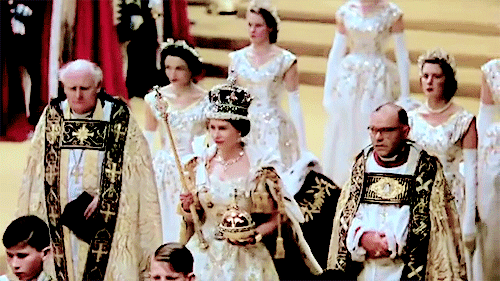
G.K. Chesterton wrote that “the opponents of ritual attack it on the ground that it becomes formal and hollow. So it does. But ritual only becomes formal and hollow where men are not sufficiently ritualistic.” What did he mean by that? A clue can be found in publication of The Black Book back in 1820 which was radical critique of the corruption and power of the English Establishment. It made this comment on royal ritual: “Pageantry and show, the parade of crowns and coronets, of gold keys, sticks, white wands and black rods; of ermine and lawn, maces and wigs, are ridiculous when men become enlightened, when they have learned that the real object of government is to confer the greatest happiness on the people at the least expense.” Forty years later, Lord Robert Cecil, the future third marquess of Salisbury, having watched Queen Victoria open parliament, wrote with scarcely more approval: “Some nations have a gift for ceremonial. No poverty of means or absence of splendour inhibits them from making any pageant in which they take part both real and impressive. Everybody falls naturally into his proper place, throws himself without effort into the spirit of the little drama he is enacting, and instinctively represses all appearance of constraint or distracted attention.”
As Sir David Cannadine, the great British historian, suggests, the elite's desire to temper the radical consequences of democracy was a crucial reason for their invention of so many royal rituals since the later nineteenth century. Indeed, for Cannadine, it is precisely the 'invention' and performance of royal rituals and Christian traditions, perfected at the end of the nineteenth and beginning of the twentieth century, which prevented the British monarchy from suffering the same fate as its Austrian, Prussian and German equivalents.
The Queen's coronation in 1953 was the first major international event to be broadcast on television, with an estimated 20.4 million viewers in the UK alone, 56% of the adult population. The coronation was the first media event seen by the majority of the population, and was for many their first experience of 'watching the box'. What people saw or were presented in the case of the British monarchy, were many references to its past by pointing out similarities between Elizabeth II and her famous predecessor Queen Victoria, by highlighting the longevity of rituals, or by implementing (seemingly old, but often invented) traditions in royal events like jubilees. In all of these cases, a diachronic genealogical link to the past is established in order to point to the institution's continuity, stability and anchorage in British history.
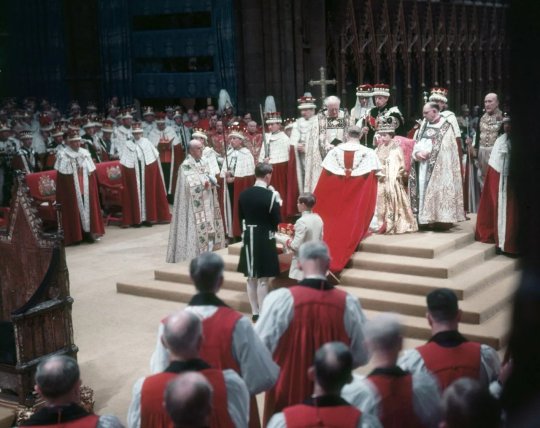
But Chesterton is onto something that has never really been talked about when we look what is behind the Christian symbology of rituals (real or invented).
The uncomfortable truth - for republicans and others of no Christian faith - is that Britain’s monarchy stands as the world’s only remaining state religious institution. The coronation is more than mainly a religious ceremony, as if that remaindered it for everyone not religious. It is a symbol among much else of the world’s oldest and only global narrative: God’s story. It goes all the way back to the crowning of Edgar by St. Dunstan in AD 973, drawing, it is said, an on even older Frankish ceremony. It takes place in Westminster Abbey, the national shrine. The oath is administered by the highest clergyman in the land. His office takes precedence even over the monarch himself. There is not just the formula “So help me God” repeated as does the U.S. president at the end of every secular statement; there is not simply an oath “upon my honour and integrity,” as in Turkey, or upon the honour of the nation, as in France.
The new queen in 1953 was asked, “Will you to the utmost of your power maintain the laws of God and the true profession of the gospel?” And she, and now as Charles will, pledged to do this, kneeling at the altar of the greatest temple in the land, hand upon Bible; “the most valuable thing this world affords,” the priest intones. And of which the priest then adds:
Here is wisdom. This is the royal law. These are the lively oracles of God.
Then, in the even more amazing rite of unction that stretches in one unbroken line from the anointing of Solomon by Zadok the priest and Nathan the prophet in the Hebrew Bible, the king is anointed with oil under a gold awning in a ceremony of the utmost holiness and away from the gaze of onlookers (it will not be televised). The archbishop hands him the symbols of his rule:
Receive this orb set under the cross, and remember that the whole world is subject to the power and empire of Christ our redeemer.
It is this that is the radioactive heart of Britain’s monarchy, and the secret of its strength. I think King Charles knows this. And so King Charles III will, I hope, defend faith in such a way that accounts for the universal and particular, all the while remaining committed to Christianity, the fabric of Britain’s history and heritage.
Both the monarchy and its rituals are together a protection against tyranny and a remedy for weakness. For, long forgotten by secular pundits, it models itself on the Christian belief that authority is what it is because it has been crucified; that only Christ the servant king is truly powerful, and because all are fallen, all can be restored only through him. The eternal Light that will outlive the rise and fall of worldly civilisations is just what the nations of the world need to hear.
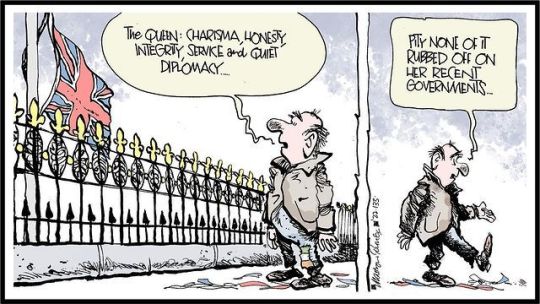
Coming back down to more earthly concerns, the British public look to the monarchy to represent continuity, stability and tradition, but also want it to be modern, to reflect modern values and be a focus for national identity, inclusive of creed, colour, and sexual orientation. The monarchy provides the poetry and the government provides the prose.
Writing in the 1860s, Walter Bagehot, The Economist’s greatest editor, noted that under Britain’s constitutional monarchy “A republic has insinuated itself beneath the folds of a monarchy.” The executive and legislative powers of government belonged to the cabinet and Parliament. The crown was the “dignified” part of the state, devoted to ceremony and myth-making. In an elitist age, Bagehot saw this as a disguise, a device to keep the masses happy while the select few got on with the job.
You do not need a monarchy to pull off the separation, obviously. Countries like Ireland rub along with a ceremonial president instead. He or she comes from the people and has, in theory, earned the honour. A dud or a rogue can be kicked out or prosecuted. To a degree, history lays down the choice - it would be comic to invent a monarchy from scratch.
However, constitutional monarchy has one advantage over figurehead presidencies that is the final reason behind our British monarchy’s surprising success: its mix of continuity and tradition, which even today is tinged with mystical vestiges of the healing royal touch. All political systems need to manage change and resolve conflicting interests peacefully and constructively. Systems that stagnate end up erupting; systems that race away leave large parts of society left behind and they erupt, too. Look at France, a country I live in now and I love, it had a revolution to overthrow a king only to end up with an emperor who made war on Europe, and left a country that has gone through as many republics as often I’ve changed my underwear in a working week.
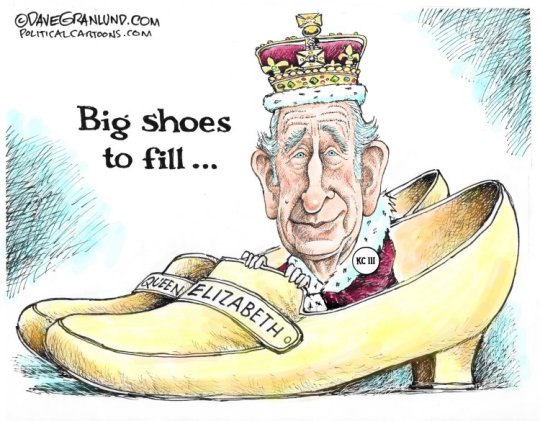
Under our late Queen Elizabeth II, Britain changed unrecognisably. Not only had it undergone social and technological change, like other Western democracies, but it was also eclipsed as a great power. More than once, most recently over Brexit, politics choked. During all this upheaval, the continuity that monarchy displays has been a moderating influence. George Orwell, no establishment stooge, called it an “escape-valve for dangerous emotions”, drawing patriotism away from politics, where love of country can rot into bigotry. Decaying empires are dangerous. Britain’s decline has been a lot less traumatic than it might have been.
Elizabeth’s sleight of hand was to renew the monarchy quietly all the while, and King Charles’s hardest task will be to renew it further. The prospect is daunting, but entirely possible. My money is on the monarchy.
God save the King!
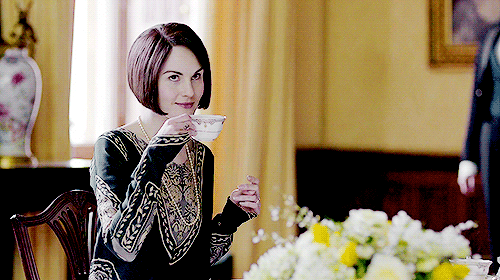
Thanks for your question.
#ask#question#british monarchy#monarchy#king charles III#queen elizabeth II#united kingdom#britain#royalty#nobility#history#tradition#custom#heritage#constitutional monarchy#europe#england#personal
63 notes
·
View notes
Photo
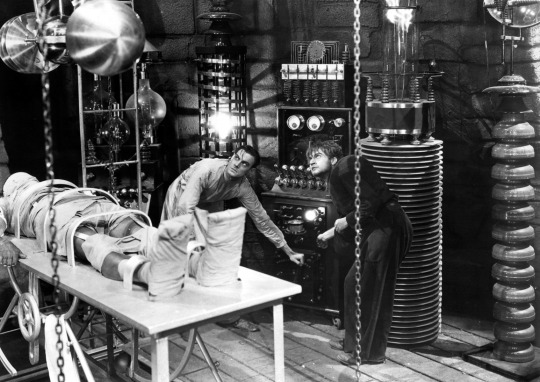
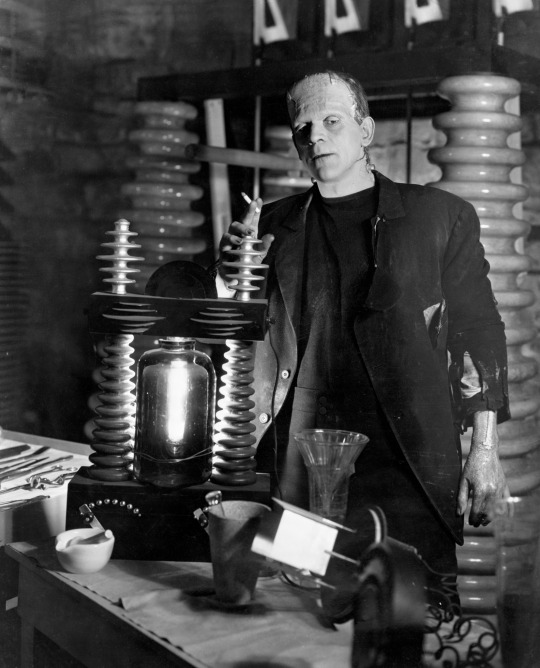
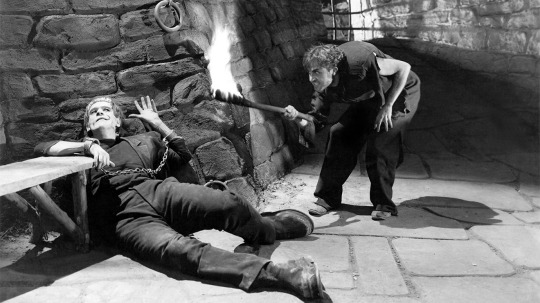
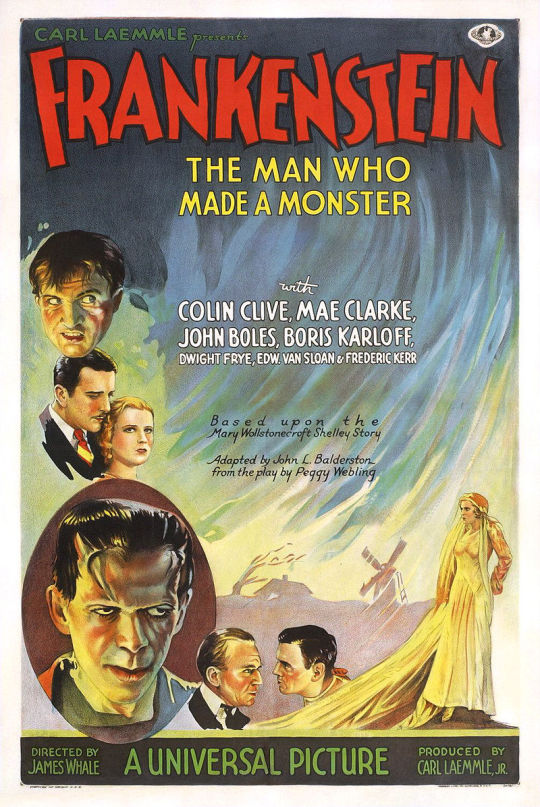
Frankenstein 1931
William Pratt (Boris Karloff)
#Frankenstein#William Pratt (Boris Karloff)#cine de culto#terrified#Terror y misterio#cine clasico#cigarros pall mall#Ron Cartavio#Hot Topic#vans classics#vans old school#cerveza Pilsen#cervezas y chicas#pizzas y musica#dr martens#Boris Karloff#Colin Clive#Victor Frankenstein#Mae Clarke#elizabeth lavenza#Edward van Sloan#Doctor Walkman
3 notes
·
View notes
Note
Okay this is out of simple curiosity.
But did you plan out all the clones or are you making them up as you write the arc?
Follow up question:
Will we be introduced with other clones or just the Bendy clones and the couple references of Alice or Boris clones?
(( both. some of the clones i've made in advance, about half in advance and half to-be-made.
for example, out of the 10 clones at Pie Crust Mall, Bindy is the only one i had to design, all the other ones i already had a ref for.
but sometimes i have a design in mind and i only decide to actually draw them out once i get to their reveal, such as Bindy, 8-Ball, and Dumpling.
follow up answer:
since this is the Bendy clone revival arc, the focus is on Bendy clones, so the latter. if i ever return and the arc reaches its conclusion, i did plan on introducing some of the other toon clones properly instead of in memory bubbles.
you did meet two new Boris clones in this arc though, so i guess there's that ))
20 notes
·
View notes
Note
Omg.... Please share your headcanons about the goth kids
>:3c mwahahaha i hope youre ready anon (cracks knuckles)
also i need share credit bc all of these were jointly created in my bf @lilachawk and i's dms <3
general:
their group chat is called "the cavern of darkness", they named it that in middle school and never changed it. any time they refer to it in verbal speech they just call is "the cavern"
they do secret santa every year. they draw names from michael's plastic viking helmet
they all definitely have their non-goth-music guilty pleasures but the main one they all have in common is lady gaga. her 2009 vma performance won their respect
they're still decent friends with stan and get invited to his birthday party every year. sometimes they go sometimes they don't
michael:
november scorpio
i'm gonna ignore how all of the houses in town are laid out because i firmly believe he has an attic bedroom. every wall/ceiling surface is covered in posters and stuff. full bookshelves, lots of tchotchkes, old concert ticket stubs, that kinda stuff. maximalism baby!!
gay gay homosexual gay
has a long haired black cat named bella (short for belladonna). rescued her from a snowstorm
him saying his parents were separated in raisins was just him being #edgy & his parents shown in gk3 are his actual parents. they never got divorced. he was raised interfaith jewish and buddhist.
he has ehlers-danlos. i always give him ring splints in my drawings. the cane is actually needed sometimes
drives his dad's old camaro. the engine is really loud and it holds up like shit in the wintertime but he’s secretly really fond of the car
got a part time job at the only respectable record store in town junior year
pete:
water sign. pisces or cancer
only child of a single father who does construction work. his dad doesn't quite understand the goth thing but he's supportive
bi king. had a normie girlfriend in highschool. not for long, but it was still a very weird experience for everyone involved
super into comics, esp indie stuff. dream job is definitely to be a comic book artist
if the shirt+bolo tie wasn't a giveaway, he's lowkey into western vibes/influences. he probably has one of those old dramatically fringed suede jackets that he found in a local goodwill
really puts the Y in diy, probably the best & most creative out of the 4 of them when it comes to altering clothes and making accessories and shit
bites his nails/picks his skin
has a pet rat named boris
a little transmasc pilled if u ask me....
henrietta:
probably a virgo
mean lesbian <3
she stays designated driver for most of high school but later on, her and michael kinda divvy up friend group driving responsibilities. she is still the default though, because when michael drives she’s an intense backseat driver
she drives her mom's horrible subaru most of the time but she 100% would be the person to save up and buy a hearse as her daily car
is always the first to hear about local shows. she just knows people
i looooove the recurring thing in fics where she is the one to dye pete's hair. she does the sally’s run & dyes/trims his hair and in exchange he fixes rips in her clothes or superglues the soles back onto her shoes or something like that
loves those new age crystal incense dragon hippie stores you see in malls. secretly likes the cool fairy statues they sell in them
firkle:
april aries
SUPER into vulture culture. has too many bones and not enough space for them
likes harsh noise music. calms him down
sends the strangest, most esoteric memes in the group chat and the rest of them have no idea where he finds them or what they mean
sorry i have like nothing else for firkle he kinda eludes me
112 notes
·
View notes
Photo

Les amants (The Lovers) // dir. Louis Malle, 1958
5 notes
·
View notes
Text
Slightly Belated 2023 Wrap-Up!
Ended up leaving for NYE celebrations early yesterday and forgot to do this, so it's coming at you a day late.
In 2023 I read 76 books total. My goal was to eliminate all of the TBR books I owned from before 2023, as it was weighing on me to have so many languishing books. I didn't quite make it, but through reading (and just getting rid of some), there are only 6 left now!
I also burnt out quite badly at the end of the year, as a result of the totally unnecessary mental barrier I put up about only reading books off my TBR. As a reaction to that, 2024 is going to be pretty goal-less.
ANYWAY.
Top Books/Series of 2023:
(in no particular order....well, chronological reading order bc that's how I'm going through storygraph)
The Serpent Gates duology - A. K. Larkwood
Biting the Sun - Tanith Lee
The Broken Earth trilogy - N. K. Jemisin (technically I only read books 2 and 3 this year, but the whole series is amazing so whatever)
Convenience Store Woman - Sayaka Murata
Ordinary Monsters - J. M. Miro
We are Bellingcat: An Intelligence Agency for the People - Eliot Higgins
Blackfish City - Sam J. Miller
The Night Eaters: She Eats the Night - Marjorie Liu and Sana Takeda
Meet Me by the Fountain: An Inside History of the Mall - Alexandra Lange
Even Greater Mistakes: Stories - Charlie Jane Anders
Yume - Sifton Tracey Anipare
The End of Everything (Astrophysically Speaking) - Katie Mack
Tripping Arcadia - Kit Mayquist
Improbable Magic for Cynical Witches - Kate Scelsa
Roadside Picnic - Arkady & Boris Strugatsky
Life Ceremony - Sayaka Murata
Earthlings - Sayaka Murata
Some Desperate Glory - Emily Tesh
Whispers Under Ground - Ben Aaronovitch
Annihilation - Jeff Vandermeer (reread)
#2023 reading wrap up#books#top books of 2023#yaaaaay it's done#tbh there were a lot of books i was just variations of lukewarm about... hopefully this year I'll read more mind-breakingly good ones
12 notes
·
View notes